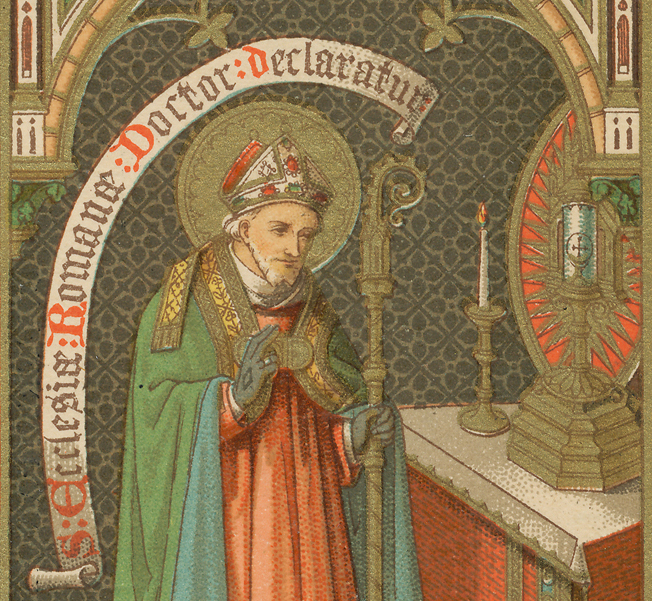On 2 October Cardinal Vincent took possession of his titular church in Rome, Santissimo Redentore e Sant’Alfonso in Via Merulana. The Church is home to the famous icon of Our Lady of Perpetual Succour which has been widely reproduced. The icon was gifted to the Redemptorist Order, who look after and maintain the Church, by Pope Pius IX in 1866.
Here Bishop John Sherrington writes about St Alphonsus Liguori and the relevance of his pastoral mission.
The feeling of joy was palpable during the celebration of Mass as Cardinal Vincent was received and ‘took possession’ of the Church of the Most Holy Redeemer and St Alphonsus on 2 October. Situated on the Via Merulana, the Church, designed by the English architect George Wigley who was one of the laymen who helped Frederick Ozanam to found the St. Vincent de Paul Society, is a rich meeting place of many nations and provides an outreach to people from Latin America and Poland.
Who was St Alphonsus?
Many people will be familiar with the hymns of St Alphonsus which include, O Bread of Heaven, O Mother blest, and From starry heights descending. He wrote a well-known version of the Stations of the Cross and many works and prayers on the Eucharist and to Our Blessed Lady. St Alphonsus desired that people learnt to pray more deeply and provided means to help them do so. He focused on the birth of Christ, his Passion and the Eucharist. He wanted to help people who were often illiterate to understand the person of Christ, his love for them and the richness of the scriptures.
As a bright and highly-talented lawyer, he also devoted himself to the care of the poor having joined the Confraternity of Our Lady of Mercy with whom he cared for the sick at the hospital for ‘incurables’. He devoted himself to works of mercy and compassion. The young Alphonsus experienced harsh confessors which made him very scrupulous. It took him many years to overcome his scrupulosity and to trust in God’s love. As a priest he realised that many people were also scrupulous, fearful of God and avoided going to confession. In preparing priests to hear confessions, he emphasised the mercy of God. His approach can be summed up in Psalm 130: ‘’With the Lord there is mercy and fullness of redemption’. His devotions to the Blessed Sacrament and the Blessed Virgin Mary helped to deepen the spiritual life of the people to whom he ministered so that they might know God’s love and mercy.
St Alphonsus helped the poor people of the region around Naples to find hope in Christ and begin to approach the sacraments after years of neglect. In contrast to overly harsh confessors, he emphasised a step-by-step approach to moral growth and a here-and-now desire for amendment of heart and conversion. Whilst weak sinners might fall again, it was important to receive God’s grace in the Sacraments to be healed and strengthened. His priestly and episcopal ministry was marked by a deep pastoral concern for the people to whom he preached.
In the eighteenth century, teaching about the moral life focused on God’s Law and had become very legalistic, rather like a book of rules. His approach in moral theology concerning ‘doubt about whether a particular law obliges in a particular situation’ sought to find a via media between the rigourism of many confessors which led people to despair and the laxity of others who did not lead people into the truth and the desire for conversion. He examined and summarised the opinions of theologians and allowed freedom when he judged it was appropriate. This was a more humane approach which respected the weakness of people and avoided imposing heavy burdens on people who could not carry them.
St Alphonsus is important because of the focus of his teaching: his concern for the spiritual welfare of the people, his recognition of human weakness, his teaching that God is abundant in mercy and his desire to help the struggling sinner to respond and do the best he can here-and-now. His thought is reflected later in the words of St. John Paul: ‘[the Church] must always be careful not to break the bruised reed or to quench the dimly burning wick (cf. Is 42:3)’ and the words of Blessed Paul VI: ‘Having come not to judge the world but to save it, he [Jesus] was uncompromisingly stern towards sin, but patient and rich in mercy towards sinners’. Like Pope Francis, St Alphonsus taught about the mercy of God and the need for step-by-step growth towards the truth as a disciple of Jesus.
Bishop John Sherrington




